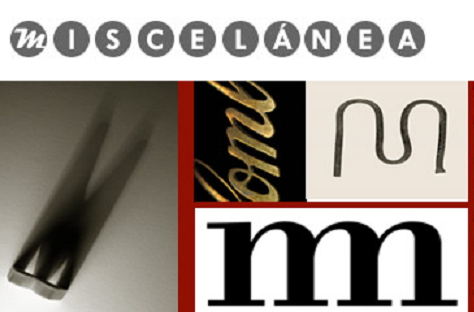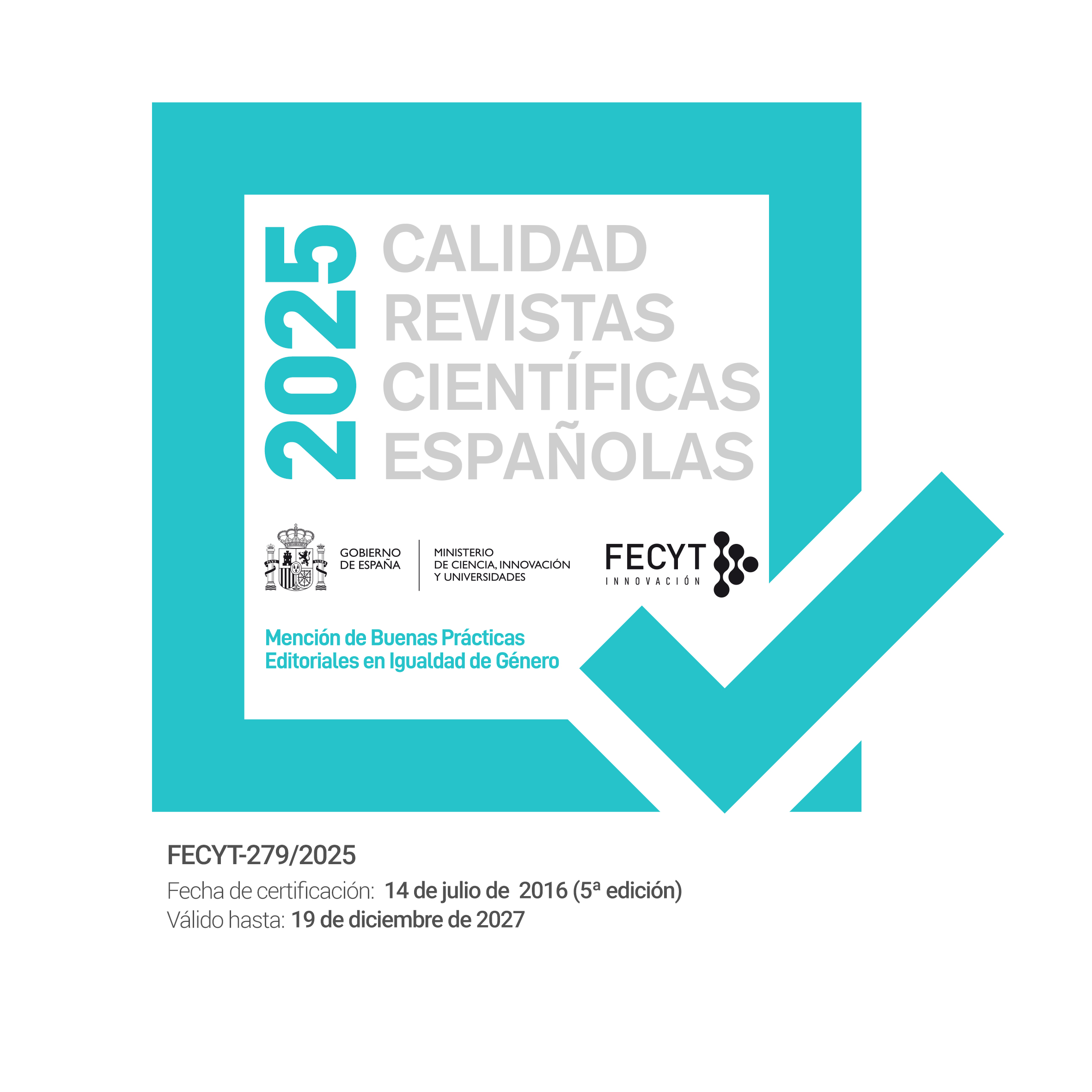Titles or Headlines? Anticipating Conclusions in Biomedical Research Article Titles as a Persuasive Journalistic Strategy to Attract Busy Readers
DOI:
https://doi.org/10.26754/ojs_misc/mj.20099714Keywords:
scientific research paper titles, news value, journalistic strategies, anticipating conclusions, English for Academic PurposesAbstract
This paper evidences the progressive adoption of a journalistic approach in title writing in certain scientific fields and suggests the reasons why this evolution has not affected all disciplines. The study is based on an analysis of 8,000 scientific research articles published over the last 25 years. The corpus was carefully selected following the advice of scientific researchers from several university departments. Factors such as the position of the journals in their impact list and the multidisciplinary or specific profile of the publication were considered. The results indicate that anticipating the conclusions in the title has become common practice
in experimental works of biomedical research. An analysis of the linguistic characteristics of these conclusive titles is included to identify their basic components. It is suggested that instruction on the use of journalistic strategies is advisable for non-native writers and readers of biomedical research articles in highranking publications.
Downloads
References
Alley, Michael. 1996. The Craft of Scientific Writing (3rd ed.) New York: Springer-Verlag.
Anthony, Laurence. 2001. “Characteristic Features of Research Article Titles in Computer Science”. IEEE Transactions on Professional Communication, 44 (3): 187-194.
Bazerman, Charles. 1985. “Physicists Reading Physics: Schema-Laden Purposes and Purpose- Laden Schema”.Written Communication, 2 (1): 3-23.
—. 1988. Shaping Written Knowledge.Madison: University of Wisconsin Press.
Berkenkotter, Carol, Thomas Huckin & John Ackerman. 1989. “Social Context and Socially Constructed Texts: The Initiation of a Graduate Student into a Writing Research Community”. Technical Report No. 33: National Center for the Study of Writing and Literacy.
Berkenkotter, Carol & Thomas Huckin. 1995. Genre knowledge in disciplinary communication: cognition, culture, power. Hillsdale, NJ: L. Erlbaum Associates: 27-44.
Bhatia Vijak. K. 1997. “Genre-Mixing in Academic Introductions”. English for Specific Purposes, 16 (3): 181-195.
Bird, P.R. & M.A. Knight. 1975. “Word Count Statistics of the Title of Scientific Papers”. The information Scientist, 9 (2): 67-69.
Black, J. D. 1962. “The Keyword: Its Use in Abstracting, Indexing and Retrieving Information”. Aslib Proceedings, 14: 313-321.
Buxton, A. B. & A.J. Meadows. 1977. “The Variation in the Information Content of Titles of Research Papers with Time and Discipline”. Journal of Documentation, 33 (1): 46–52.
Day, Robert A. 1995. How to Write and Publish a Scientific paper (5th ed). Cambridge: Cambridge U. P.
Diener, R. A. 1984. “Informational Dynamics of Journal Article Titles”. Journal of the American Society for Information Science, 35: 222-227.
Dillon, J.T. 1981a. “The Emergence of the Colon: An Empirical Correlate of Scholarship”. American Psycologist, 36 (8): 879-884.
—. 1981b. “Functions of the Colon: An Empirical Test of Scholarly Character”. Educational Research Quaterly, 5: 71-75.
Diodato, Virgil & Karen Pearson. 1985. “Source Indexing in Science Journals and Indexing Services: A Survey of Current Practices”. Science and technology Libraries, 6: 103-118.
Dudley-Evans, Tony. 1984. “A Preliminary Investigation of the Writing of Dissertation Titles”. In James, G. (ed.) The ESP Classroom: Methodology, Materials, Expectations, vol. 4. Exeter, UK: Exeter Linguistic Studies: 40–46.
Fairclough, Norman. 1993. “Critical Discourse Analysis and the Marketisation of Public Discourse: The Universities”. Discourse & Society 4(2): 133-168.
Feinberg, Hilda. 1973. The derivative Indexing techniques. A Comparative Study. Metuchen, NJ: Scarecrow Press.
Fischer, Beth A. & Michael J. Zigmond. 2004. Components of a Research Article. Retrieved January 2009 from: 2009www.survival.pitt.edu/library/documents/ComponentsofaResearchArticle.pdf
Fortanet, Inmaculada, Juan Francisco Coll, Juan Carlos Palmer & Santiago Posteguillo. 1997. “The Writing of Titles in Academic Research Articles”. In Marín, R. & A. Romero (Coords.) Lenguas Aplicadas a las Ciencias y la Tecnología: Aproximaciones. Cáceres: Servicio de Publicaciones, Universidad de Extremadura: 155–158.
—.1998. “Linguistic Analysis of Research Article Titles: Disciplinary Variations”. In Vázquez, I. & I. Guillén (eds.) Perspectivas Pragmáticas en Lingüística Aplicada. Zaragoza: Ed. Anubar: 443–447.
Gilbert, Scott F. 1988, 2nd ed. Developmental Biology. Sunderland, Massachusetts: Sinauer.
Goodman, Neville. W. 2000. “Survey of Active Verbs in the Titles of Clinical Trial Reports”. British Medical Journal, 320: 914-915.
Goodman, Richard A., Stephen B. Thacker & Paul Z. Siegel. 2001. “What’s in a Title? A Descriptive Study of Article Titles in Peer- Reviewed Medical Journals”. Science Editor, 24 (3): 75-78.
Grice, Herbert Paul. 1975. “Logic and Conversation”. In Cole, P. & J.L. Morgan. (eds.) Syntax and Semantics, vol III: Speech Acts. NY: Academic Press: 41-58.
Gross, Alan G., Joseph Harmon & Michael Reidy. 2002. Communicating Science: The Scientific Article from the 17th Century to the Present. N.Y: Oxford U. P.
Haggan, Madeline. 2004. “Research Paper Titles in Literature, Linguistics and Science: Dimensions of Attraction”. Journal of Pragmatics, 36: 293-317.
Hartley, James. 2005. “To Attract or to Inform: What are Titles for?” Journal of Technical Writing and Communication, 35 (2): 203-213.
—. 2007. “Planning that Title: Practices and Preferences for Titles with Colons in Academic Disciplines”. Library and Information Science Research, 29: 553-568.
Hodges, P.R. 1983. Keyword in Title indexes: Effectiveness in Retrieval in Computer Searchers. Special Libraries, 74: 56-60.
Huckin, Thomas. 1987. “Surprise Value in Scientific Discourse”. Paper delivered at the Conference on College Composition and Communication, Atlanta, GA.
—. 2006. “Abstracting from Abstracts”. In Hewings, M. (ed). AcademicWriting in Context: Implications and Applications. London: Continuum: 93-104.
Huth, Edward J. 1990, 2nd ed. How to Write and Publish Papers in the Medical Sciences. Baltimore: Williams & Wilkins.
Hyland, Ken. 2002. “What do they Mean? Questions in Academic Writing”. Text 22 (4): 529-557.
Kinneavy, James L. 1971. A Theory of Discourse. Englewood Cliffs, NJ: Prentice-Hall.
Lester, James D. 1993. Writing Research Papers. A Complete Guide. NY: Harper Collins.
Lewison, Grant & James Hartley. 2005. “What’s in a Title: Number of Words and the Presence of Colons”. Scientometrics, 63 (2): 341-356.
Lindsay, David. 1995, 2nded. A Guide to Scientific Writing. Melbourne: Longman.
Manten, A. A. & J.F.D. Greenhalgh. 1977. “Titles of Scientific Papers”. Animal Feed science and technology, 2 (1): 1-6.
McGowan, Jessie & Peter Tugwell. 2005. “Informative Titles Described Article Content”. Journal of the Canadian Health Libraries Association, 26: 83-84.
Mitchell, John Howard. 1968. Writing for Professional and technical Journals. NY:Wiley.
Nahl-Jakobovits, Diane & Leon A. Jakobovits. 1987. “Dependent and Independent Variables in Research Articles”. Research Strategies, 5: 164- 171.
O´Connor, Maeve. 1991.Writing Successfully in Science. London: Harper-Collins.
Rosner, Judah L. 1990. “Reflections on Science as a Product”. Nature, Vol. 345:108.
Rush, S. 1998. “The Noun Phrase in Advertising English”. Journal of Pragmatics, 29 (2): 155- 171.
Rymer, J. 1988. “The Scientific Composing Process: How Eminent Scientists Write Articles”. In Jolliffe, D. (ed.) Writing in Academic Disciplines. Norwood, NJ: Ablex: 211-250.
Salager-Meyer, Françoise. 1991. “Medical English Abstracts: How Well are they Structured?”. Journal of the American Society for Information Science, 42(7): 538-531.
—. 1995. “I Think That Perhaps You Should: a Study of Hedges in Written Scientific Discourse”. In Miller, T. (ed.) Functional Approaches to Written Texts: Classroom Applications,1. TESOL France Publications: 127-145.
Smith, Richard. 2000. “Informative Titles in the BMJ”. British Medical Journal, 320: 915.
Soler, Viviana. 2007. “Writing titles in Science: An Exploratory Study”. English for Specific Purposes, 26: 90-102.
Stix, G. 1994. “The Spread of Write. Trends on Scientific Communication”. Scientific American, 271:106-111.
Strawson, Peter. 1964. “Identifying Reference and Truth Values”. Teoría, 30: 96-118. Reprinted in Steinberg, D. and Jakobovits, L. (eds.)1971. Semantics. Cambridge: Cambridge U.P.
Swales, John M. & Christine B. Feak. 1994. Academic Writing for Graduate Students. Ann Arbor: The University of Michigan Press.
Tarone, Elaine, Sharon Dwyer, Susan Gillette & Vincent Icke. 1998. “On the Use of the Passive in Astrophysics Journal Papers: With Extensions to other Languages and other Fields”. English for Specific Purposes, 17 (1): 113-132.
Tocatlian, J.J. 1970. “Are Titles of Chemical Papers Becoming more Informative?”. Journal of the American Society for Information Science, 21: 345-350.
Wang, Yan & Yongquan Bai. 2007. “A Corpus- Based Syntactic Study of Medical Research Article Titles”. Syntax, 35 (3): 388-399.
Whissell, Cynthia. 1999. “Linguistic Complexity of Abstracts and Titles in Highly Cited Journals”. Perceptual and Motor Skills, 88: 76-86.
White, Arden & Nelda Rae Hernández. 1991. Increasing Field Complexity Revealed through Article Title Analysis. Journal of the American Society for Information Science, 42 (10): 731- 734.
Yitzhaki, Moshe. 1994. “Relation of Title Length of Journal Articles to Number of Authors”. Scientometrics, 30 (1): 321-332.
—. 1997. “Variation in Informativity of Titles of Research Papers in Selected Humanities Journals: A Comparative Study”. Scientometrics, 38 (2): 219-229.
—. 2002. Relation of the Title Length of a Journal Article to the Length of the Article. Scientometrics, 54 (3): 435-477.
Downloads
Published
Issue
Section
License
Copyright (c) 2009 Mercedes Jaime Sisó

This work is licensed under a Creative Commons Attribution-NonCommercial 4.0 International License.


